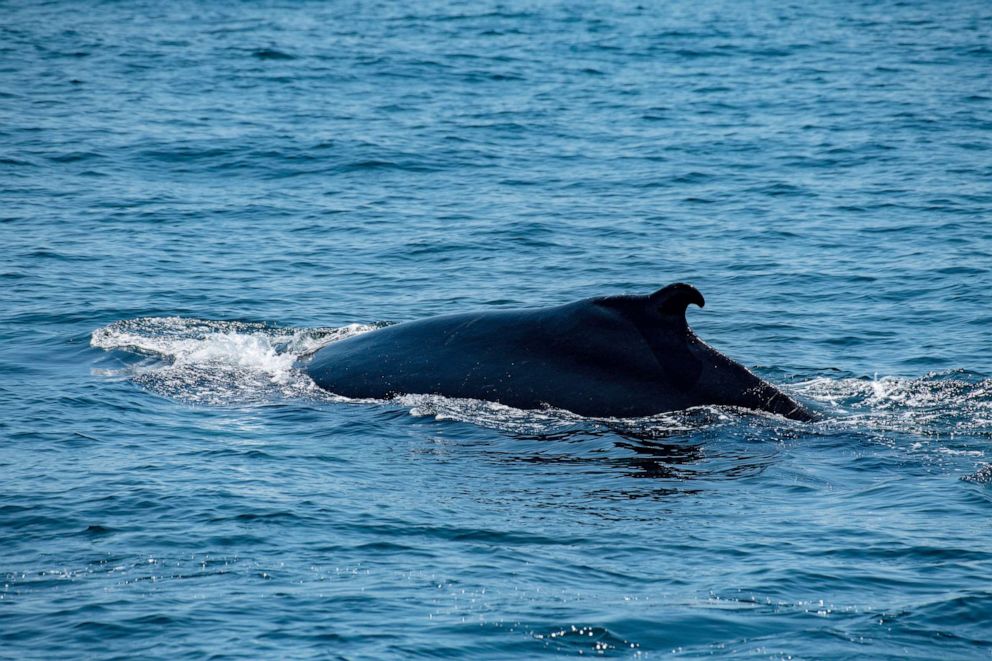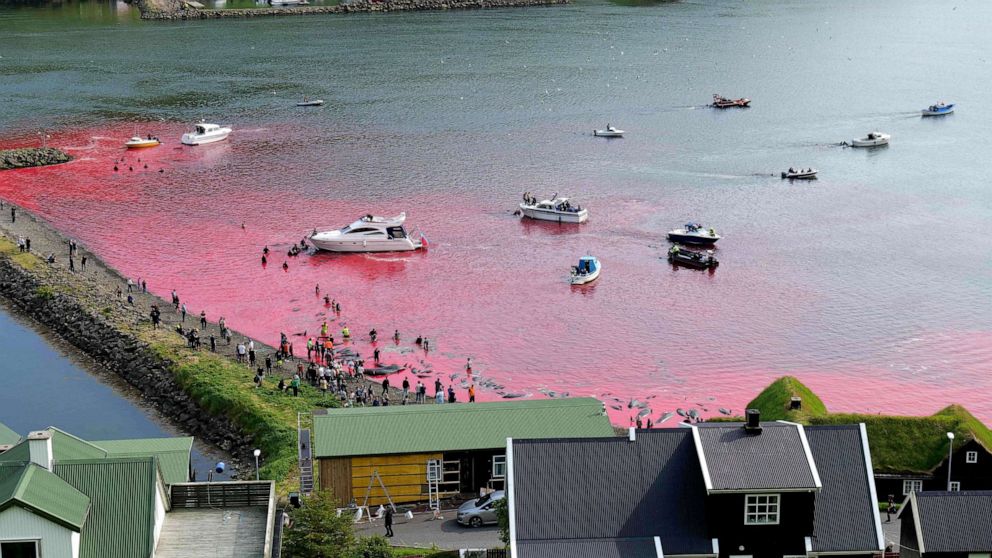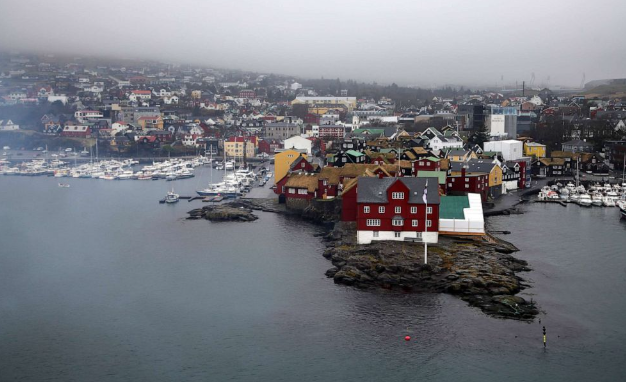The Faroe Islands hunt on average 800 pilot whales annually.
LONDON — A cruise line has apologized to over 1,000 of its passengers after one of its ships arrived at port in the middle of a whale hunt where dozens of the marine mammals were being slaughtered.
Ambassador Cruise Lines confirmed on Thursday that the arrival of their ship Ambition in Torshavn in the Faroe Islands — located between Scotland, Iceland and Norway in the North Atlantic — “coincided with the culmination of a hunt of 40+ pilot whales in the port area,” according to the cruise line.
“We were incredibly disappointed that this hunt occurred at the time that our ship was in port. We strongly object to this outdated practice, and have been working with our partner, ORCA, a charity dedicated to studying and protecting whales, dolphins and porpoises in UK and European waters, to encourage change since 2021,” Ambassador said following the arrival of their ship in the Torshavn port area on the southern part of the main island.
The government of the Faroe Islands, however, has been clear on their stance of the whale hunting for several years.
“As has been the case for centuries, whaling still occurs in the Faroe Islands today,” a statement from the government of the estimated 53,000 people on the island said explaining the values of the whaling hunt. “The Faroese have eaten pilot whale meat and blubber since they first settled the islands over a millenia ago. Today, as in times past, the whale drive is a community activity open to all, while also well organised on a community level and regulated by national laws.”
In their apology, Ambassador said that sustainability is one of the cruise line’s “core values” and that the company fully appreciates that “witnessing this local event would have been distressing for the majority of guests onboard. Accordingly, we would like to sincerely apologise to them for any undue upset.”

“We are dedicated to supporting ORCA in their endeavours to collect data and to monitor whales and dolphins and we are extremely disappointed that this has happened after weeks of trying to open constructive dialogue with the Faroese government and Visit Faroes on these issues,” Christian Verhounig, Ambassador’s CEO, said in their statement. “We continue to educate our guests and crew not to buy or eat any whale or dolphin meat and stand against any profiteering from commercial whaling and dolphin hunts.”
But the Faroe Island’s government said that the hunt is part of the island’s sustainability efforts and that “the meat and blubber from the hunt is distributed equally among those who have participated … Hunting and killing methods have been improved to ensure as little harm to the whales as possible. All hunters must now obtain a hunting license in order to kill a whale.”

Although pilot whale meat and blubber contains much protein, iron, carnitine and vitamins, the Faroe Islands government said there are concerns that the high levels of mercury and PCBs in the whales can have detrimental health effects and said that “ocean pollution by heavy industries and industrialized agriculture has resulted in the pollution of whales.”
“Records of all pilot whale hunts have been kept since 1584 and the practice is deemed sustainable, as there are an estimated 778,000 whales in the eastern North Atlantic region,” the government continued. “Approximately 100,000 swim close to the Faroe Islands, and the Faroese hunt on average 800 pilot whales annually.”
